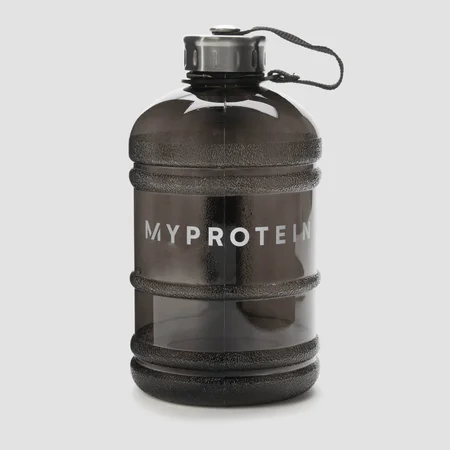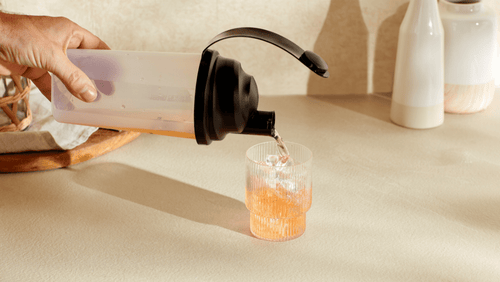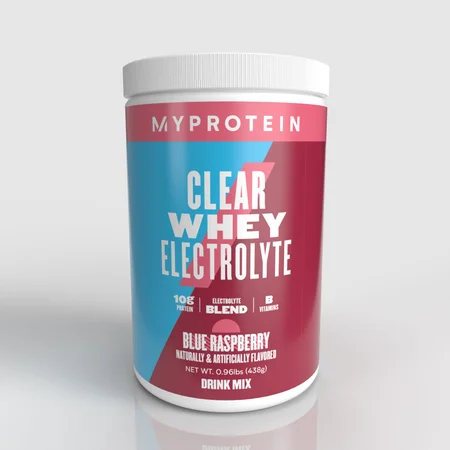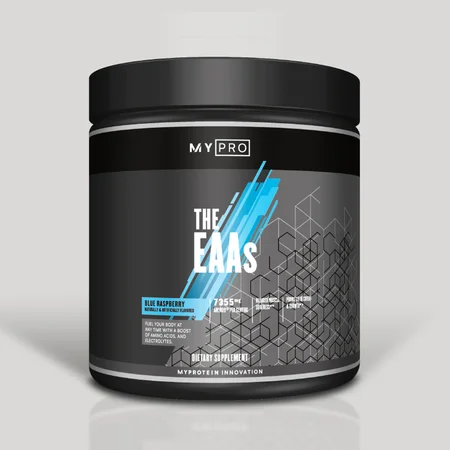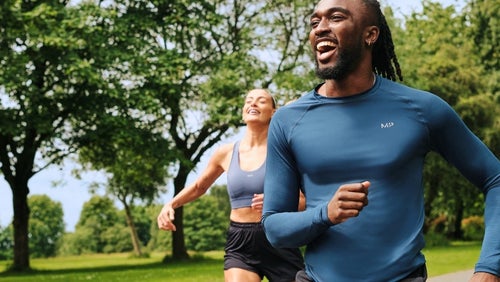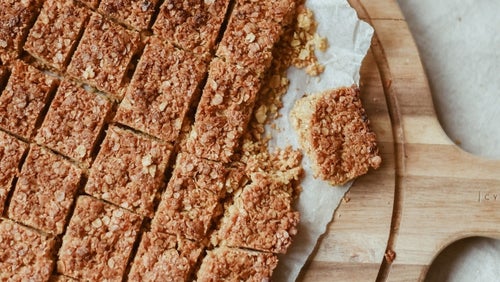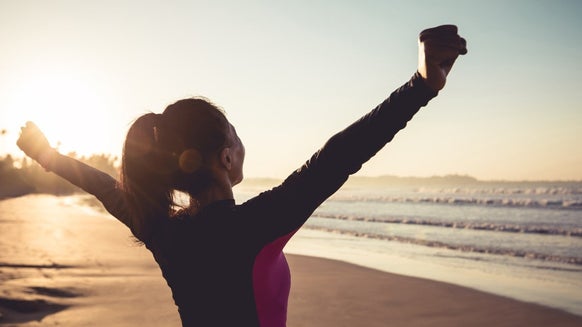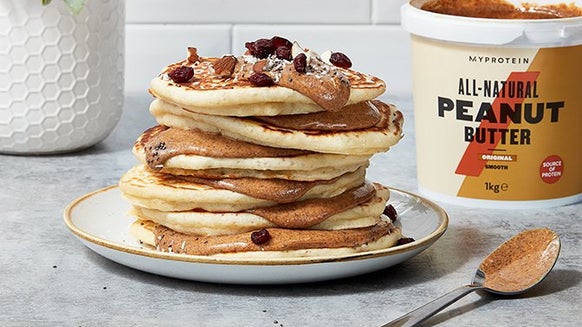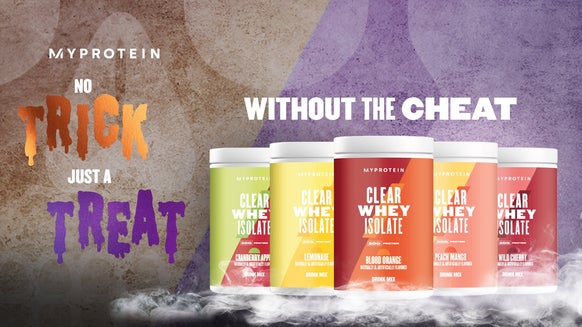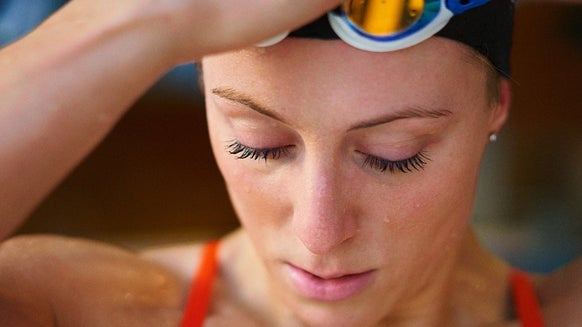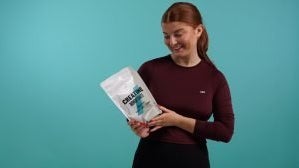Staying Hydrated During Hot Summer Days
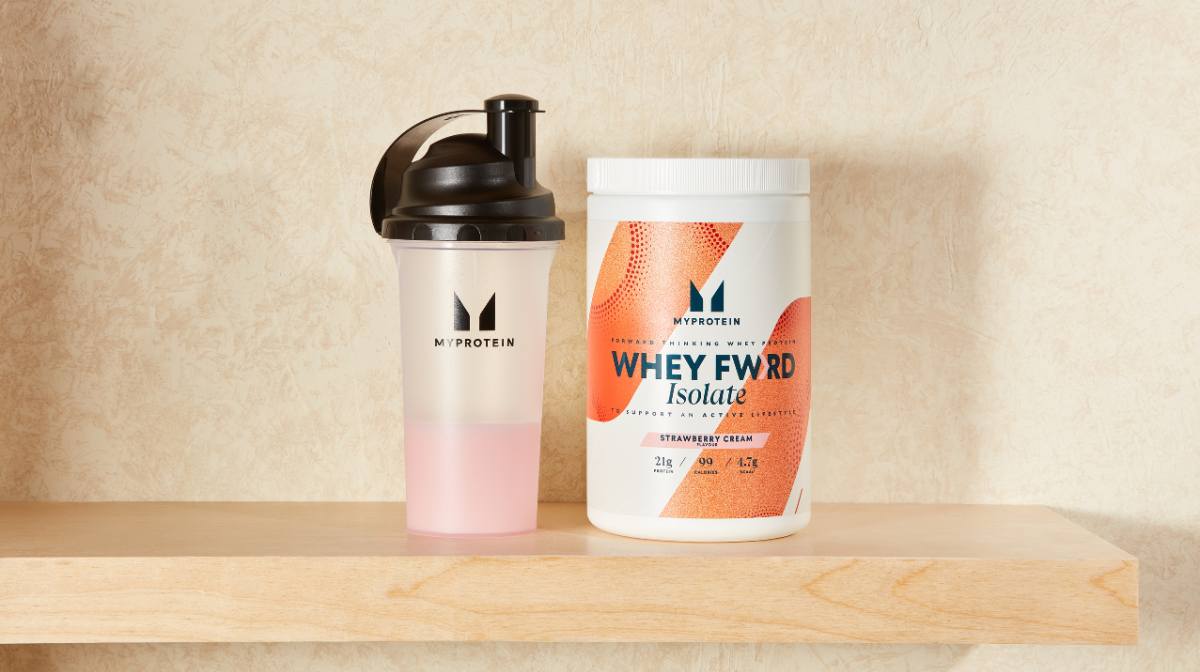
We all know the importance of drinking enough water, especially when it's hot and we're at greater risk of dehydration. But why is it so important? What exactly does water do, what happens when the body's fluid levels are low, and what can you do to keep them filled up? Let's find out.
- Why Hydration Matters
- Effects of Dehydration on the Body
- Hydration and Physical Performance
- Mental Performance and Hydration
- Signs and Symptoms of Dehydration
- How Much Water Do You Really Need?
- Best Times to Hydrate During the Day
- Hydration Strategies for Active Lifestyles
- Choosing the Right Beverages for Hydration
- Hydrating Foods to Include in Your Diet
- Tips for Staying Hydrated During Exercise
- Hydration Myths and Facts
- Impact of Caffeine and Alcohol on Hydration
- Hydration Tips for Athletes
- Long-Term Benefits of Proper Hydration
- Hydration and Skin Health
Why Hydration Matters: The Science Behind It
Water is fundamental to our existence, making up to 60% of our body weight.1 It is everywhere in our bodies — in our blood, inside our organs, and even in our bones.2
It’s no surprise then that water is essential for numerous physiological processes, such as transporting nutrients and oxygen, removing waste products, lubricating joints, regulating body temperature, and maintaining blood pressure.
Effects of Dehydration on the Body
We constantly lose water through sweating, urination, and breathing. This water loss is a natural part of a complex system that removes waste and regulates our body temperature.
We lose approximately 2-3 litres of water a day, which needs to be replaced through what we drink and what we eat.3 If we don’t replace these losses, we end up losing more fluid than we take in. This can lead to dizziness, headaches, lethargy, poor concentration and feelings of weakness, and sometimes even more complex problems.
Hydration and Physical Performance: What You Need to Know
Hydration should be at the forefront of our minds when exercising, as even mild dehydration can impair strength and endurance. This is because during exercise, the body loses fluids through sweat to help regulate its temperature. If we don’t replace this lost water, this affects our bodily systems, for example, less oxygen may be delivered to the muscles, or joint lubrication may be compromised, resulting in muscle cramps and injury.4
To maintain peak performance, it’s essential to hydrate before, during, and after exercise. Research suggests that even just a 5% dehydration of body mass can lead to a reduction in upper limb strength.5
It’s a good idea to adjust water intake based on the intensity and duration of the exercise, climate, and your size, as this will affect how much water is lost. For more intense activity or exercise on hotter days, you might lose electrolytes as well as water. Replacing these with an electrolyte drink will help to balance your fluid levels and support your athletic performance.
Once your workout is done, don’t forget to keep up your hydration with small, regular amounts of water to aid recovery. You could try pairing this with post-workout protein intake, using Clear Whey Electrolyte to support muscle repair alongside hydration.

Supplement Guide for Endurance Athletes | Myprotein Training Plan
The supplements you need to fuel even your hardest workouts.
Mental Performance and Hydration: Staying Sharp in the Heat
Our brains are made of up to 75% water, which means that hydration is vital for mental performance.6 Research has shown increased neural activation in dehydrated adults performing tasks needing brain engagement, suggesting that the brain must work harder with greater water loss.7
The brain is highly sensitive to changes in hydration status, and even mild dehydration can impair cognitive functions such as concentration, alertness, and short-term memory.8 Longer term, chronic dehydration has been linked to greater decline in cognitive function.9
When we are well hydrated, our minds perform at their peak, with better concentration, memory, and quicker reaction times.7 So, don’t forget to grab a glass of water throughout the day to stay sharp and on task.
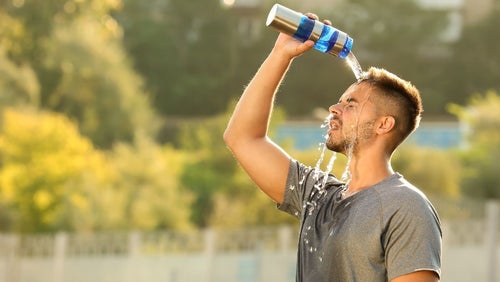
How To Train Safely In Hot Weather
Get a sweat on without risking your safety.
Signs and Symptoms of Dehydration
Dehydration can sneak up on you, so it’s important to keep an eye out for symptoms of it. Common signs include a dry mouth, feeling thirsty, and dark yellow urine. You might also experience dizziness, headaches, difficulty concentrating, irritability, constipation, or fatigue. Severe dehydration can lead to more serious complications such as kidney stones and urinary tract infections.
Monitoring urine colour can be an easy way to check your hydration status. Pale yellow urine typically indicates good hydration, while dark yellow can be a sign of dehydration. But don’t wait for these symptoms to escalate — get into the habit of drinking enough water throughout the day to prevent them from occurring.
How Much Water Do You Really Need?
The current recommendations are between 1.5-2 litres of fluid a day (6-8 cups), which is a good goal for most people. However, factors like age, weight, activity levels, and climate play a role in how much water you should be drinking.
If you are physically active or exercise regularly, you may need more water to compensate for fluid lost through sweat. Certain health conditions can mean higher hydration needs, such as fever, vomiting, or diarrhea. Hot weather also increases the need for water as the body loses more fluids through sweat.
Remember, foods with high water content also contribute to your daily hydration goals. So, if you struggle with drinking water, you could try following up meals with foods high in water. It’s important to stay hydrated in a way that works best for you.
Best Times to Hydrate During the Day
Timing can mean a lot when it comes to staying hydrated. Starting your day with a glass of water to prime your body for the day helps. Drinking water before a meal can prep the gut to aid digestion and help to control your appetite.
Drinking water little and often helps you stay more hydrated than infrequent large quantities. So, sip on water throughout the day to keep your energy levels up and your mind sharp.
Hydration Strategies for Active Lifestyles
- Carry a water bottle: Keep a water bottle with you throughout the day to make it easier to sip water regularly.
- Set reminders: Use smartphone apps to remind you to drink water at regular intervals.
- Listen to your body: Pay attention to signs of dehydration, such as dark urine, dry mouth, dizziness, or fatigue.
- Adjust for environment: Increase your fluid intake in hot or humid conditions, as you lose more water through sweat.
- Choose hydrating foods: Incorporate water-rich foods into your diet.

Choosing the Right Beverages for Hydration
When it comes to staying hydrated, not all beverages are created equal. Water is often best as it's calorie-free and easily accessible. Sugar-sweetened beverages are not a good hydration choice as they add calories to your diet and impact blood glucose regulation.
However, some other drinks can support hydration, such as herbal teas that add flavour without added sugars. Coconut water is a great natural option, packed with electrolytes.
Electrolytes: The Key to Optimal Hydration
Some common electrolytes include sodium, chloride, potassium, magnesium, and calcium. Generally, we can get all of the electrolytes we need from eating a balanced diet. However, depending on your lifestyle, it might be beneficial to supplement with electrolytes.
For example, if you're particularly active, you probably sweat quite a lot. As we sweat our bodies lose water and electrolytes, leaving you dehydrated.
You can purchase electrolytes as a powder, as gels, or as pre-made drinks.
Hydrating Foods to Include in Your Diet
Staying hydrated isn’t just about what you drink. Try to incorporate water-rich foods like cucumbers, melon, and tomatoes, which are over 90% water, into your diet for a hydration boost.10
Leafy greens like broccoli and spinach are great options, packing a hydration punch along with essential nutrients such as iron. Other foods such as yogurt and soups can also add extra fluid to your day.
This way you can add more nutrients to your diet alongside staying hydrated. Just be mindful that foods high in salt and sugar can increase your water needs and undo your hydration efforts.

Tips for Staying Hydrated During Exercise
Hydrate before, during, and after exercise: Hydrate before you begin exercising and then sip fluids regularly throughout your workout. After exercise, continue to drink fluids to replace any fluid lost.
Choose the right fluids: Water is usually sufficient for most workouts, but if you're engaging in intense exercise, consider a drink that contains electrolytes, like Clear Whey Electrolyte, to help replace what you lose through sweat.
Pay attention to signs of dehydration: If you experience symptoms of dehydration, stop exercising and rehydrate.
Hydration Myths and Facts
Myth 1: Thirst is a reliable indicator of hydration status.
Fact: By the time you feel thirsty, you may already be mildly dehydrated. A good way to tell is looking at your urine — if it’s pale, then you’re well hydrated.
Myth 2: Drinking liquids is the only way to stay hydrated.
Fact: While drinking water to stay hydrated is a great habit, you can also achieve your fluid intake through foods with a high-water content.
Myth 3: Sports drinks are always better than water for hydration.
Fact: For most people engaging in moderate-intensity exercise lasting less than an hour, water is sufficient for hydration. Electrolyte drinks are great for intense exercise lasting over an hour.

Myth 4: You can't drink too much water during hot weather.
Fact: Drinking excessive amounts of water without adequate electrolyte intake can dilute sodium levels in the blood, leading to a dangerous condition called hyponatremia. But this is very rare and would require drinking a lot of water.
Impact of Caffeine and Alcohol on Hydration
While your morning coffee and evening cocktail might be your go-to, both can increase urine production and reduce hydration. Caffeine can be enjoyed in moderation without significant dehydration, but it's wise to balance it with water. Alcohol, however, can dehydrate you quickly, especially in larger quantities. To stay properly hydrated, try drinking water alongside these drinks.

What Are The Benefits Of Caffeine? Give It Up Or Worth The Performance Benefits?
How to figure out if caffeine is worth the side effects for you.
Hydration Tips for Athletes
Individualize your hydration plan: Experiment with different strategies to develop a personalized hydration plan.
Monitor fluid loss: Weigh yourself before and after an activity, working out the percentage of body weight loss can help you to monitor how much fluid you have lost.
Consider electrolyte needs: Athletes engaged in prolonged or intense exercise may lose more electrolytes through sweat and may benefit from electrolyte-enhanced drinks.
Be mindful of climate: Hot conditions can increase fluid losses through sweat. Seek shade, wear breathable clothing, and increase fluid intake during workouts in hot weather.
Long-Term Benefits of Proper Hydration
Proper hydration has long-term benefits, not only optimizing your current physical and cognitive function but also potentially reducing the future risk of chronic diseases and slowing down aging. Research has shown that adults who are dehydrated appear to be more likely to develop chronic conditions, be older than their chronological age, and have a higher risk of early mortality.11 So, by making hydration top of your list, you are investing in a healthier future.
Hydration and Skin Health: Keeping Your Skin Glowing
Hydration plays a crucial role in maintaining healthy, glowing skin, helping to keep the skin cells plump and well-nourished and reducing the appearance of fine lines, wrinkles, and dullness. Hydration of the outer layer of the skin, the stratum corneum, has been shown to be inversely correlated with inflammation (which can show up as conditions such as acne or psoriasis).
Additionally, proper hydration supports the skin's natural barrier function, protecting against environmental stressors and preventing moisture loss.12 Drinking plenty of water can help maintain skin hydration levels, leaving your skin looking vibrant and supple.
Take Home Message
Staying hydrated supports everything from cognitive function and physical performance to digestion and skin health. Incorporate water-rich foods, drink plenty of fluids, and be mindful of your intake of caffeine and alcohol.
By making hydration a priority, you’ll feel more energized and focused. Remember, your body thrives on water, so keep that bottle handy.
FIND MORE HERE:
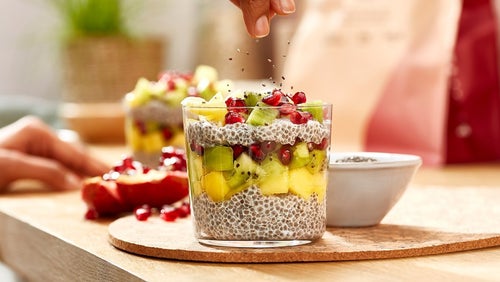
High-Protein Breakfast Foods
breakfast is the most important meal of the day...
Hannah Daw holds an MSc in Eating Disorders and Clinical Nutrition from UCL and is a Registered Associate Nutritionist with the AfN.
Hannah has a wide range of experience including a background in working with adults with pre-diabetes in the NHS and children with feeding disorders. Through this she has developed a nuanced understanding of diverse nutritional needs across age groups. Her research paper on comorbidities in Paediatric Feeding Disorders underlines her commitment to advancing knowledge in her field.
As an evidence-based practitioner, Hannah’s work is rooted in scientific research, and she is committed to continuous professional development. Currently, Hannah runs her own nutrition business, providing tailored nutritional guidance to both adults and children, helping them achieve their health goals. Hannah’s practise is focused on developing a relaxed and positive relationship with food to nourish our bodies.
Hannah’s other interests include running and kayaking in the countryside where she lives.
- British Nutritional Foundation, accessed on 14.06.2024, https://www.nutrition.org.uk/nutritional-information/hydration/
- Surowiec, R. K., Allen, M. R., & Wallace, J. M. (2021). Bone hydration: How we can evaluate it, what can it tell us, and is it an effective therapeutic target? Bone reports, 16, 101161.
- Popkin, B. M., D’Anci, K. E., & Rosenberg, I. H. (2010). Water, hydration, and health. Nutrition reviews, 68(8), 439–458. https://doi.org/10.1111/j.1753-4887.2010.00304.x
- Judge, L. W., Bellar, D. M., Popp, J. K., Craig, B. W., Schoeff, M. A., Hoover, D. L., Fox, B., Kistler, B. M., & Al-Nawaiseh, A. M. (2021). Hydration to Maximize Performance and Recovery: Knowledge, Attitudes, and Behaviors Among Collegiate Track and Field Throwers. Journal of human kinetics, 79, 111–122.
- Ceylan, B., Kons, R. L., Detanico, D., & Šimenko, J. (2022). Acute Dehydration Impairs Performance and Physiological Responses in Highly Trained Judo Athletes. Biology, 11(6), 872.
- Zhang, N., Du, S. M., Zhang, J. F., & Ma, G. S. (2019). Effects of Dehydration and Rehydration on Cognitive Performance and Mood among Male College Students in Cangzhou, China: A Self-Controlled Trial. International journal of environmental research and public health, 16(11), 1891. https://doi.org/10.3390/ijerph16111891
- Wittbrodt, m. T., & Millard-Stafford, m. (2018). Dehydration Impairs Cognitive Performance. Medicine & Science in Sports & Exercise, 50(11), 2360–2368.
- Adan A. (2012). Cognitive performance and dehydration. Journal of the American College of Nutrition, 31(2), 71–78.
- Nishi, S. K., Babio, N., Paz-Graniel, I., Serra-Majem, L., Vioque, J., Fitó, M., Corella, D., Pintó, X., Bueno-Cavanillas, A., Tur, J. A., Diez-Ricote, L., Martinez, J. A., Gómez-Martínez, C., González-Botella, A., Castañer, O., Alvarez-Sala, A., Montesdeoca-Mendoza, C., Fanlo-Maresma, M., Cano-Ibáñez, N., & Bouzas, C. (2023). Water intake, hydration status and 2-year changes in cognitive performance: a prospective cohort study. BMC Medicine, 21(1).
- BDA, accessed on 14.06.2024, https://www.bda.uk.com/resource/the-importance-of-hydration.html#:~:text=Good%20hydration%20is%20critical%20to,regularly%20and%20keep%20thirst%20away.
- Dmitrieva, N. I., Gagarin, A., Liu, D., Wu, C. O., & Boehm, M. (2023). Middle-age high normal serum sodium as a risk factor for accelerated biological aging, chronic diseases, and premature mortality. EBioMedicine, 87, 104404. https://doi.org/10.1016/j.ebiom.2022.104404
- Draelos, Z. D. (2009, January 1). Chapter 18 – Proper Skin Hydration and Barrier Function (A. Tabor & R. M. Blair, Eds.). ScienceDirect; William Andrew Publishing.

